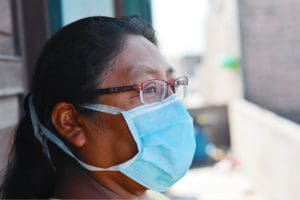What is Medicaid?
Medicaid is a joint federal and state health insurance program for eligible low-income adults, children, pregnant women, elders, and people with disabilities. Medicaid is administered by each state.
Medicaid Eligibility and Medicaid Expansion
Medicaid eligibility varies by state. Medicaid eligibility is based on income, household size, disability, family status, and other factors. American Indian and Alaska Native trust income is NOT counted to determine eligibility.
You must be a United States citizen, a U.S. national, or have a satisfactory immigration status to be eligible for full benefits. If you are unsure if you qualify for Medicaid, you should apply, especially if you have children, are pregnant, have high medical expenses, or a disability.

Low-income elders and people with disabilities may be eligible to enroll in both Medicaid and Medicare. Medicaid covers services beyond those provided under Medicare, including nursing facility care or skilled nursing facility care beyond 100 days, prescription drugs, eyeglasses, and hearing aids. Services covered by both programs are first paid by Medicare with Medicaid paying the difference up to the state’s payment limit.
In most states, if you receive supplemental security income (SSI), you may be automatically eligible for Medicaid. In some states, an SSI application is also an application for Medicaid. In other states, you must apply for and establish your eligibility for Medicaid with an agency other than Social Security.
The Affordable Care Act’s Medicaid expansion began in 2014 and included nearly all adults with incomes up to 138 percent of the Federal Poverty Level. States that chose to expand Medicaid received an enhanced federal matching rate for their expansion populations. By July 2022, 39 states, including the District of Columbia had adopted Medicaid expansion.
Some states expand Medicaid to include people who are “medically needy” such as people with breast or cervical cancer or tuberculosis. People with high medical expenses may be eligible for Medicaid even when their income and or assets exceed eligibility criteria. If you are unsure if you qualify, apply for Medicaid.
Two Ways to Apply for Medicaid
You can apply anytime. Medicaid does NOT have open enrollment periods.
1. Apply through the Health Insurance Marketplace®
2. Apply directly to your state Medicaid agency
 Services Covered by Medicaid
Services Covered by Medicaid
Medicaid offers low-cost or free health insurance for you and your family. When you enroll, you can get:
- Doctor’s visits
- Preventive care (immunizations, mammograms, colonoscopies)
- Prenatal and maternity care
- Hospital stays
- Mental health care
- Needed medications
States have the option to offer additional services such as prescription drugs, case management, and physical therapy.
American Indians and Alaska Natives who are eligible for Medicaid:
- Can still get care from their Indian care provider
- Do not have to pay premiums or co-payments from an Native health care provider
- Native trust income is NOT counted to determine eligibility
Medicaid Costs
The purpose of Medicaid is to serve low-income people, so the amounts charged for services are less expensive than Medicare or private insurance. Some individuals will qualify for free services or care.
States can impose copayments, coinsurance, deductibles, and other similar charges on most Medicaid-covered benefits. The amounts charged vary by income for both inpatient and outpatient services. Out-of-pocket charges are also called, “cost sharing,” and are based on the individual state’s payment schedule for that service. Premiums or co-payments are not charged for Medicaid patients at Indian Health Service facilities (IHS), Tribal, or Urban Indian Health Programs.
Out-of-pocket costs cannot be imposed for emergency services, family planning services, pregnancy-related services, or preventive services for children. Generally, out-of-pocket costs are small and apply to all Medicaid enrollees except those specifically exempted. Exempted groups include children, terminally ill individuals, and individuals living in an institution.
Because Medicaid covers particularly low-income and often very sick patients, services cannot be withheld for failure to pay, but enrollees may be held liable for unpaid copayments.
Find Free IHS, Tribal, Or Urban Indian Health Programs
Find hospitals, dental clinics, behavioral health facilities, and health centers near you by using an online interactive map: www.ihs.gov/findhealthcare.